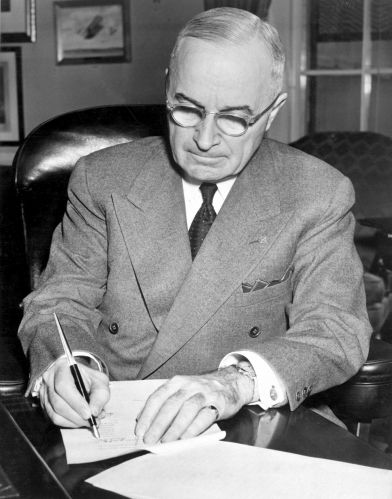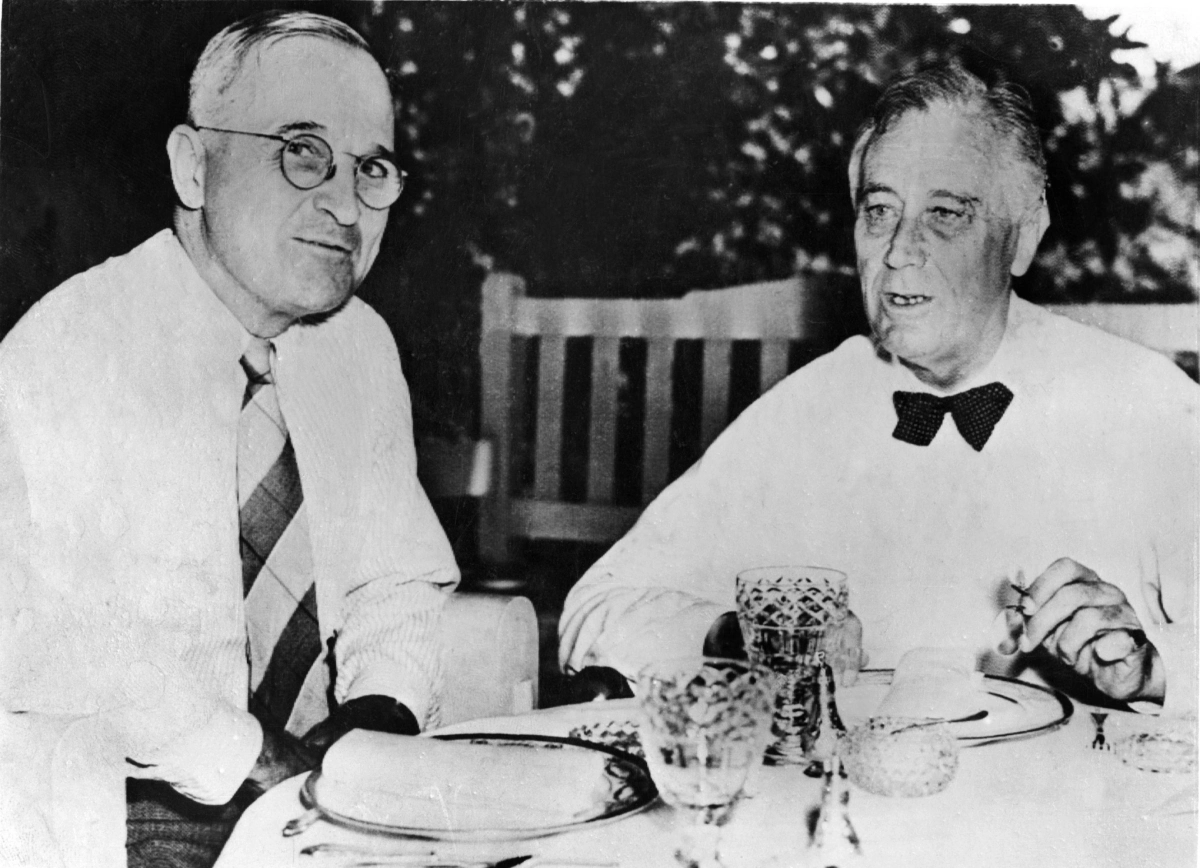By Kaleena Fraga
In the hit broadway play Hamilton, George Washington sings about his need for a right hand man. Washington has a point–presidencies can either thrive or wilt depending on who the president choses to include in his inner circle.
Often the focus is on the chief of staff–Chris Whipple wrote an excellent book detailing the make-or-break relationships presidents have had with their COS. This includes Bob Haldeman, who knew better than other aides when to listen to Nixon, and when to ignore his commands as venting.
Yet the president can draw strength on people other than their chiefs of staff–a relatively new position, anyway. We take a look at members of presidential political circles who–through their absence–proved their importance to the presidency.
Ulysses S. Grant
Grant entered the White House as war hero after the Civil War. Grant was a military genius in his own right, creating and executing battle plans that eventually defeated the Confederacy. Upon hearing suggestion that his victory was due only to the overwhelming manpower he possessed in comparison to the South, Grant objected–after all, generals before him had had just as many men, and yet failed.

Grant owed some of his success to his aide, John A. Rawlins. As the war slogged on, Grant wrote that Rawlins “comes the nearest to being indispensable to me of any officer in the service.” Rawlins, writes Grant biographer Ron Chernow, “could confront [Grant] with uncomfortable truths and fiercely contest his judgement…with his thoroughgoing skepticism and mistrust of people, he was the ideal foil to Grant’s excessively trusting nature.”
Rawlins, along with Grant’s wife, Julia, also largely succeeded in suppressing Grant’s alcoholism during the war. Rawlins had Grant pledge he would not drink at all until the war ended, and he himself took a pledge to remain sober. Rawlins also organized Grant’s affairs, and helped him to maintain a positive relationship with politicians in Washington D.C. Rawlins kept Grant sober with mixed success–he always reacted with disappointment and alarm when he learned that his friend had gone on a bender. When Grant drank, he got drunk. But thanks to Rawlin’s watchful eye, he drank rarely during the war.
When Grant became president in 1869, Rawlins was one of many loyal army friends who followed Grant to the White House. But the war had worn heavily on Rawlins, and he had suffered with health problems for years. At the age of thirty-eight, he died of tuberculosis.
Grant possessed battle savvy but little business acumen, and he was more trusting of men than his late friend. Rawlins’ loss was devastating to the Grant Administration. Chernow writes: “Rawlins would have warned the president against predatory, designing figures who encircled him in Washington. He would have detected wrongdoers and been a stalwart voice against corruption…with Rawlins gone, Grant lacked that one trusted adviser…”
Grant and his administration would be plagued by charges of corruption, as the easily trusting Grant let people into his inner circle that Rawlins would have likely barred.
Harry S Truman
When Truman unexpectedly became president in 1945, he reached out to his old high school friend, Charlie Ross, to be his press secretary. Ross accompanied the president all over the world, even playing poker with Truman and Winston Churchill. David McCullough details their close relationship in his biography of Truman.

Aside from his duties as press secretary, Ross was a friend and a shoulder for the president to lean on. When Truman started talking walks on doctor’s orders, he confided in Ross that it helped him sleep better. On Ross’ counsel, Truman learned to better respond to “smarty questions” at press conferences, answering “No comment”, “your guess is as good as mine”, or, “I’ll cross that bridge when I come to it.” Ross also played a crucial role in cooling down the president, especially as an editor. When railroad workers threatened to strike, Truman was furious. He wrote a seven page speech, which he gave to Ross to read. Ross told him he needed to rework it, so they did, with the help of several other aides.
In a letter Ross wrote to Truman in 1947, he said:
“There is nothing in life, I think, more satisfying than friendship, and to have yours is a rare satisfaction indeed…the greatest inspiration, Mr. President, has been the character of you–you as a President, you as a human being. Perhaps I can say best what is in my heart by telling you that my admiration for you, and my deep affection, have grown steadily since the day you honored me with your trust.”
When Ross died unexpectedly of a coronary occlusion in 1950, Truman was devastated by his loss. He wrote a tribute describing Ross as “the friend of my youth…a tower of strength…patriotism and integrity, honor and honesty, lofty ideals and nobility of intent were his guides…” Truman could not bring himself to give the statement to the press without breaking down. “Aw hell,” he said to a group of reporters. “I can’t read this thing. You fellows know how I feel, anyway…”
That night, Truman’s daughter sang at Constitution Hall, prompting a journalist named Paul Hume to write a scathing review. Truman responded the next day, calling Hume a “frustrated old man”, the review “lousy”, and suggested that he’d like to beat Hume up.
The country, reeling under an increasingly bloody and unpopular war in Korea, reacted with fury. Telegrams to the White House were 2:1 against Truman. One such telegram read:
“How can you put your trivial personal affairs before those of one hundred and sixty million people. Our boys while your infantile mind was on your daughter’s review. Inadvertently you showed the whole world what you are. Nothing but a little selfish pipsqueak.”
George Elsey, a Truman speechwriter, noted sadly that “Charlie Ross would never have let the Paul Hume letter get out…Charlie was…a calming fine influence on Truman, a tempering influence…much more than a press secretary.”
Lyndon B. Johnson

Walter Jenkins had long been an LBJ loyalist, joining his staff in 1939 while Johnson was still in Congress. He was close with both LBJ and his wife, Lady Bird, and had been a political aide of Johnson’s through good times and bad. One of Jenkins’ children was named “Lyndon.” In her book on Lady Bird and the Johnson marriage, Betty Boyd Caroli writes that the Johnsons loved Jenkins “like a blood relative.” By 1964, he had worked for LBJ for 25 years, “[working] eighteen hour days, [canceling] critical medical appointments, and doggedly [tackling] all of LBJ’s assignments, even those delivered in such condescending, abusive terms that Jenkin’s face flushed red,” writes Caroli.
So it came as a shock to Lyndon and Lady Bird when they received a call that Jenkins–a married father of six–had been arrested on a “morals charge.” Jenkins had been caught in a homosexual encounter in a public restroom.
The subsequent conversation between LBJ and Lady Bird was recorded–known only to the president–and captures a fascinating moment in their marriage. Lady Bird wanted to help Jenkins–if he could no longer work at the White House, she wanted to offer him a job with one of the family’s television stations in Texas. LBJ refused.
“I don’t think that’s right,” Lady Bird said. “When questioned, and I will be questioned, I’m going to say that this is incredible for a man that I have known all these years, a devout Catholic, a father of six children, a happily married husband.”
Lady Bird told the president he should make some gesture of support to his longtime aide. LBJ refused.
“We just can’t win this,” the president said. “The average farmer just can’t understand your knowing it and approving it or condoning it.”
Because Johnson refused to issue a statement of support, Lady Bird wrote one herself, which she gave to The Washington Post.
(Their full conversation is available online, and is a look at the dynamics of their marriage.)
Aides to Johnson later speculated that Jenkins’ absence was detrimental to LBJ and his presidency. Johnson’s Attorney General, Ramsey Clark, thought that Jenkins’ “counsel on Vietnam might have been extremely helpful.” Johnson’s press secretary, George Reedy, agreed, later saying, “All of history might have been different if it hadn’t been for that episode.”
When it comes to a presidency, those in the inner circle can make a real difference on the president’s success. But often their impact is not felt until they’ve vanished.



 aggression.”
aggression.”
 United States would “take whatever steps were necessary” to stop the communists. He added that he never wanted to use the bomb again, acknowledging, “it is a terrible weapon, and it should not be used on innocent men, women and children.”
United States would “take whatever steps were necessary” to stop the communists. He added that he never wanted to use the bomb again, acknowledging, “it is a terrible weapon, and it should not be used on innocent men, women and children.” In 1952, Korea was a
In 1952, Korea was a 

 Schoumatoff was standing at her easel painting the president when something in his demeanor changed. She later recalled: “He looked at me, his forehead furrowed in pain, and tried to smile. He put his left hand up to the back of his head and said, ‘I have a terrible pain in the back of my head.’ And then he collapsed.”
Schoumatoff was standing at her easel painting the president when something in his demeanor changed. She later recalled: “He looked at me, his forehead furrowed in pain, and tried to smile. He put his left hand up to the back of his head and said, ‘I have a terrible pain in the back of my head.’ And then he collapsed.” in his own right. Although his approval rating hovered in the
in his own right. Although his approval rating hovered in the